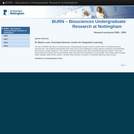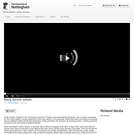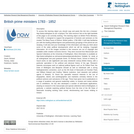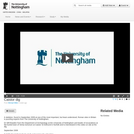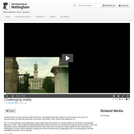To access this learning object you should copy and paste this link into a browser: http://www.nottingham.ac.uk/~cczjrt/pm/
The 'view resource' link on the right hand side of this page is not currently working.
This learning object on British Prime Ministers, 1783-1852, is designed to support the programme of lectures and seminars on the module The Many Faces of Reform: British politics, 1790-1850.
It will help familiarise you with the leading political figures and parliamentary groupings of the period we are studying. It will also test your knowledge of this information and help you think about some of the wider political developments which we will be studying.
Copyright Information: All of the images included in this resource are out of copyright and available under creative commons licence. They were sourced from Manuscripts and Special Collections at the University of Nottingham.
More information is available at:
http://www.nottingham.ac.uk/manuscriptsandspecialcollections
Suitable for study at all undergraduate and post graduate levels.
Dr Richard Gaunt, School of History
Dr Gaunt works on late eighteenth and early nineteenth century British history, with a particular specialism in the political and electoral history of the age. Research interests encompass work on national political figures such as Sir Robert Peel, the Duke of Wellington and Benjamin Disraeli as well as individuals with a strong Nottinghamshire connection, such as the 4th Duke of Newcastle (of Clumber Park) and William Edward and Godfrey Tallents (solicitors, land stewards and political agents of Newark).
Dr Gaunt has specialist research interests in the use of biographies, diaries and autobiographies and maintains scholarly interest in the political cartoons and caricatures of the age. These have given rise to publications in a range of academic and general readership outlets, to reviews and review articles and to exhibitions. He has also developed a number of web-based applications, drawing on research in the manuscripts and special collections held at Nottingham, in particular, a website exploring political themes from the time of the 4th Duke of Newcastle including working class unrest, electioneering and issues relating to Ireland.

